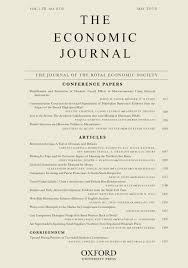
\van Wijnbergen\, S. (1992). Intertemporal speculation, shortages and the political economy of price reform Economic Journal, 102(415):1395--1406.
-
Affiliated authorSweder van Wijnbergen
-
Publication year1992
-
JournalEconomic Journal
Price controls often focus on commodities that are storable and can thus be used in intertemporal speculation. Second, opposition to dismantling of controls is often based on claims of low supply response, and greatly bolstered if a strong supply response fails to materialise. This is especially relevant in Eastern Europe, where experience with markets is limited. We show the difficulties that these two factors create for gradual decontrol of prices. We endogenise the probability of a collapse of the reform programme and show that such endogeneity in the presence of intertemporal speculation leads to a strong case against gradualism. The smaller the initial price increase, the lower the observed supply elasticity and the greater the probability that the programme of reform will be abandoned. This implies that the policy that makes most sense from a microeconomic point of view (decontrol immediately) is also advisable from a macroeconomic point of view. Credibility problems, which are at the core of the transitional output losses that characterise most stabilisation programmes, will be much less under a cold turkey approach and so will therefore transitional unemployment.